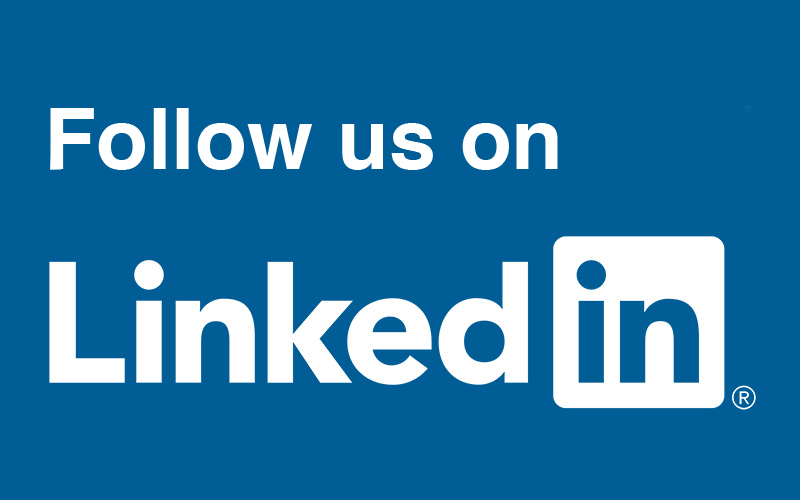On the night of October 21st, Canadians voted and elected their 43rd government – a Liberal minority government and only the 14th minority government in Canadian history.
The significance of this minority government and what it might mean for Canada and our manufacturing partners is what Baumen is paying close attention to as the Liberals appoint their cabinet on November 20th, 2019.
Let’s Look Back…
Prior to this election the Liberals, under the leadership of Justin Trudeau, governed four years with a majority government in the House. At the time of Trudeau’s first term, Barack Obama was President of the United States and as Canadians we enjoyed relatively few trade issues across our border. NAFTA was “reasonably secure.”3
However, on this election night a different landscape was painted in Canada – one deeply divided politically – a country embroiled in trade wars with the U.S., experiencing mounting tariffs, and with still an unratified USMCA. This Liberal minority government lost the popular vote (33.1% – the lowest popular vote in Canadian history since John A. Macdonald to form a government)1 and failed to win a single seat in the House from Winnipeg to Vancouver.2
For Trudeau, it must feel a little like déjà vu. In 1972, his father, then Prime Minister Pierre Elliot Trudeau, lost his majority government to form a minority government for two years before forming a majority government again in 1974.
New challenges to pull the country together, politically and economically, without control of the House face Justin head on. Of particular interest for Baumen and our manufacturing partners are the national concerns on trade, Trans Mountain Pipeline, environmental regulations and climate change and how this new Liberal minority government will leverage the opposition parties for their support.
Why is Trade so important?
Canada depends on trade. We are a “trading nation. Trade generates 66% of the continuing income to pay for things we want and need, such as those promised during the just-concluded electoral campaigns”.10 Increasing taxes is only beneficial if there is income to tax. In Canada, much of that income comes from trade and selling abroad.10
As Lawrence Herman wrote in the Globe and Mail, “Whomever the Prime Minister designates to carry the can in our trade relations with the United States over the next period will need to be up to the task in a whole variety of way. The well-being of the country will depend on it.”7
In addition to managing this important relationship, the incumbent Trade and Foreign Affairs Ministers will have to manage the fate of our USMCA as well as trading relationships emerging with other global partners. For example, Canada has moved forward by signing trade agreements in Europe and Asia where they are “selling more goods to better markets.”10 The caveat is that these new trading partners are voicing concerns with Canadian supply chains and their ability to deliver.
In order to generate confidence, Canada will need to invest in its delivery infrastructure such as rail, road, water and air channels as demand for trade with Canada grows outside of our partnership with the US. Of political concern is whether this Liberal minority will find enough national support for transportation infrastructure initiatives to move forward on these projects.
As we continue to watch this government cultivate new trade partners, Baumen will be paying special attention to the cabinet appointment of Trade and Foreign Affairs Ministers and what it may mean for our global manufacturing partners.
Where Did We Leave Off With the Trans Mountain Pipeline (TMX)?
Support for the TMX nationally is also split, not just between the elected parties but east to west as well. In their last term, the Liberals committed to the pipeline with their purchase of TMX after Kinder Morgan abandoned the project. However, with a minority government, there is national concern that the Liberals will in fact have support to complete the TMX with BLOC and NDP opposition.
Despite polarizing election results, support for the TMX is confirmed by Envrionics tracking of Canadian opinion on oil sands and the pipeline. Their findings3 show that most Canadians this past year continue to support the development of the oil sands (56%) and the construction of the pipelines to move oil west (54%) and south (56%). From the same poll, Canadians across all parties showed support and a belief that Canada should establish an energy corridor and halt importing of foreign oil, with 9 of 10 Canadians believing that Canada should instead rely on the oil it produces.3 The support for the energy corridor and for reliance of our own oil illustrates that, save for the BLOC and NDP, constituents across Canada would move to build the pipeline. A completed TMX would benefit the Canadian economy particularly in the West where both the economy and support for the Liberals has waned.
With respect to our partners, the TMX provides many growth opportunities for manufacturing in Canada and dependence on national product and design. Strengthening the Canadian economy in turn funds the pockets of Canadians and the infrastructure required to strengthen our manufacturing base which is critical to Canada’s growth.
Lastly, We Can’t Forget About Environmental Regulations & Climate Change
The Liberals campaign promise was to move to net-zero emissions by 2050. This will require extreme innovation from the oil and gas sector in combination with Alberta hardening their stance on coal.8 Both the BLOC in Quebec and the NDP have even stronger environmental platforms than the Liberals that they will want to push forward in response to the national concerns on climate crisis. Overwhelmingly, Canadians whilst divided on other national issues, unanimously support initiatives to mitigate the current climate crisis. Sabrina Kim, a spokeswoman for Environment Minister Catherine McKenna says, “Young people are pushing their governments for a more sustainable future. We hear them, and all of the Canadians who sent a clear message this election that tackling climate change is a clear priority that they want this Parliament to work on.”11 This will mean Liberal support for initiatives in public transit, tree planting, electric vehicles, investments in clean energy technologies and support for aggressive emission targets. Baumen sees all of this as an opportunity for Canadian manufacturers to move into these markets as key suppliers of innovative product and to become global leaders in sustainable manufacturing processes.
In Conclusion
Minority governments produce an interesting climate in Canadian government. Opposition parties can be stronger and leverage their position in the House on important party initiatives such as trade, the TMX and the climate crisis. Further, a minority government forces greater transparency and public engagement. Cooperation and collaboration are extremely important between all parties. In effect, the minority government is more democratic and operates more constructively to meet the needs of the country.
With the economy as it is, this Liberal minority government – if collaborative – should allow for a rich environment for manufacturing in Canada to flourish particularly in industries associated with energy and climate mitigation initiatives. Trade partnerships and supporting delivery infrastructure will be prioritized to stimulate and grow the Canadian economy.
Baumen looks forward to the potential positive outcomes of this minority government and what it means for our partners in manufacturing. As we engineer partnerships, we are always on the lookout for opportunities that align with our core values of legacy and sustainability. Connect with Baumen.
1- The Sunday Edition with Michael Enright Oct. 25, 2019: The Sunday Edition for October 27, 2019.
2- CBC News: The House with Chris Hall Oct. 26 2019: The Election is Over, so What Happens Next?
3- The Globe and Mail: Report on Business for Tuesday, October 29, 2019. Where do the federal parties meet on politics and the pipeline?
4- https://newsinteractives.cbc.ca/elections/federal/2019/results/
5- https://www.macleans.ca/politics/transcript-justin-trudeaus-post-election-speech/
6- https://www.cbc.ca/news/politics/trudeau-liberal-minority-government-2019-1.5331926
7- The Globe and Mail: Report on Business for Tuesday, October 29, 2019. Much is riding on the handling of our erratic neighbour.
8- The Toronto Star: Canada for Wednesday, October 30, 2019. Ottawa, provinces need each other.
9- https://thenarwhal.ca/what-a-liberal-minority-government-means-for-canadas-environment/
10- The Globe and Mail. Opinions & Analysis for Thursday, October 31, 2019. Canada’s Infrastructure woes affect our trade.
11- https://www.canadianmanufacturing.com/environment-and-safety/pressure-for-climate-action-mounts-on-liberals-as-activists-organize-241228/





